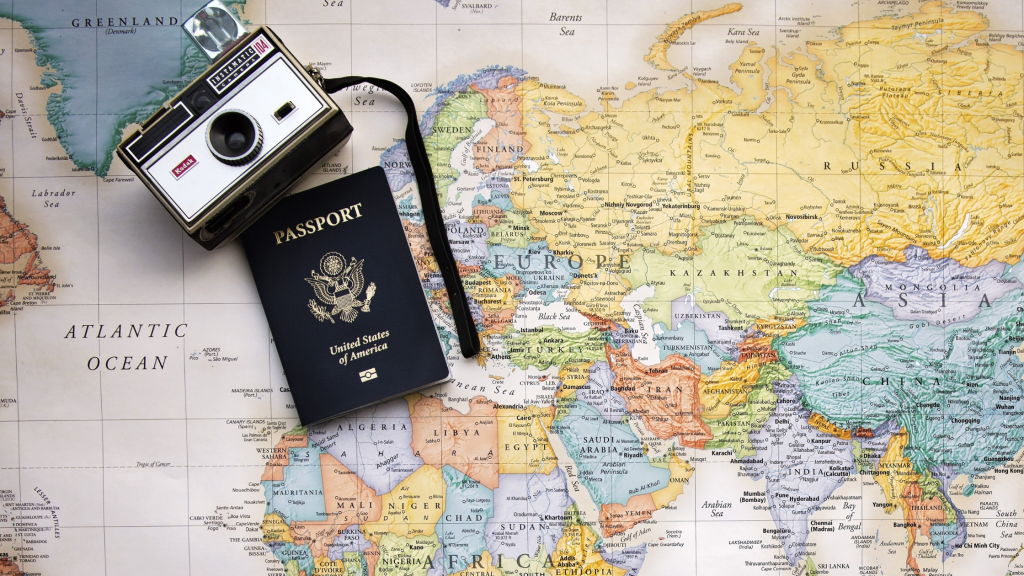
Studying abroad has become a highly anticipated part of the college experience. Pre-pandemic, there were more opportunities to go overseas for students than ever before, and many of those programs have recently returned.
But applying for study abroad programs often feels like applying for college all over again. Even if your child is in a major or program where studying abroad is required, there will be several considerations to think about and a fair amount of material to complete.
I spent 15 years working at a Boston-area university that offered many study abroad programs, and I was charged with notarizing all the students’ various paperwork. Here is some advice to share with your child that I learned from speaking with students, parents, and administrators over those years.
Get your passport or have it renewed the summer prior to your first year.
If you are even just thinking about studying abroad at some point during your college career, apply for your passport before you even arrive on campus. You don’t want to be frantically applying for a passport and caught in a possible government backlog when it’s time to apply to abroad programs. This is also key for any student who is part of a major or program where the abroad experience is mandatory.
Think about whether your desired abroad program truly fits in with your major.
So you have dreams of studying in Paris. But will doing so set you back in terms of degree requirements? Not all abroad programs fit with every major. For instance, your university may have a program in Paris, but it might only offer literature, art history, or European history courses, which might be problematic if you are in a science-related major. If the location is a non-negotiable for you, make sure you have saved enough of your general education requirements to use on the courses that are offered at that destination.
Also, just because you are a science or pre-med major doesn’t mean you can’t go abroad. Many larger universities offer abroad programs that teach those pre-med, science, and engineering courses overseas, allowing as many students as possible to have the abroad experience.
Find yourself a notary.
After you are accepted to a study abroad program, you are often asked to get several items notarized in a very short period of time. These can include color copies of your passport, bank statements, and other visa documents. In the time between applying to a study abroad program and getting your acceptance, identify where you can go to get these items notarized. Where on campus is there a notary available? (Try your dean of students or registrar’s office first.)
When it comes to a bank statement, only your bank can notarize that, so you will have to figure out how you can get that done quickly. Is this something a parent has to do and mail to the student because there are no branches of your bank by campus? Or if there is a branch by campus, what hours do they have a notary available? Be prepared to devote a few hours to get things notarized quickly after you are accepted to your program.
Review your health insurance.
If you have opted to use your own medical insurance for college instead of the school’s offered plan, you need to examine what your private insurance covers before going abroad. Will your insurance cover doctors or hospital visits in another country? Does it make any stipulations regarding where someone on the plan may be for longer than a month?
If your child has chosen a study abroad program run by a college other than their own, and if they are on a health plan offered by their college, will that coverage carry over for the semester they are in that program?
Determine whether there are COVID-related requirements where you’ll be traveling. Think about what would happen in the event of a national emergency?
Some countries still have COVID regulations. Others border nations that may be involved in conflict. The world can be chaotic, and while it is still important to travel and experience other countries, you should be prepared.
Before you apply or accept your spot in a study abroad program, feel free to ask administrators what the program’s plans are in terms of COVID, another pandemic, or a national emergency. What vaccines may be mandated in that country, and what documentation will they require? Is any quarantine mandated upon entering the country? If there is an emergency, what is the plan for getting students home or to a safe country quickly?
Planning and preparing for a study abroad program can be a lot of work — but it’s an experience your child will always treasure!













